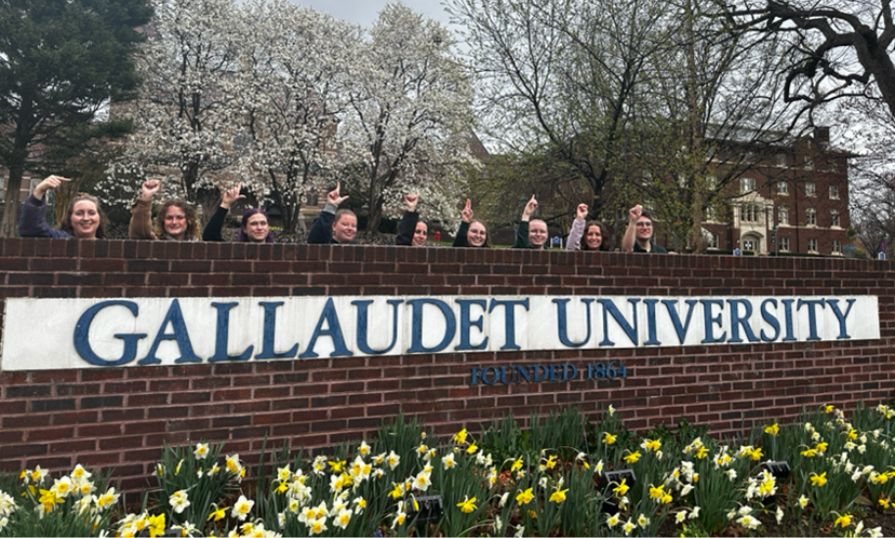Kayla Wiesblatt's Story
Category:
Study abroad student
Country:
United States

Throughout the trip, we were immersed in diverse signing styles and cultural experiences that pushed us to grow. At Gallaudet, we toured the campus, observed an ASL linguistics class, and visited exhibits exploring the intersection of Deaf and Indigenous identities. These moments reminded us that fluency in ASL is not just about knowing signs, but also about understanding the rich cultural and historical contexts in which they are used. Our time in Deaf spaces helped us see what full language access looks like, something interpreters must constantly strive to support.
We committed to using ASL as much as possible, even during downtime at our accommodations. This kind of language immersion was new for many of us and gave us a better understanding of the daily realities faced by Deaf individuals navigating hearing-centric environments. We also visited places like the Starbucks Signing Store, where Deaf culture is not just welcomed but celebrated. These experiences underscored the importance of cultural humility and the crucial role interpreters play in promoting inclusion beyond the workplace.
There were moments that tested us ethically as well. At a social event, we noticed a lack of signing among many hearing attendees, despite the presence of Deaf individuals. Choosing to stay voiceless and engage fully in ASL felt like a quiet act of allyship, and it reminded us that ethical decision-making doesn’t only happen on assignments, but also in everyday interactions.
Whether interpreting at a basketball game, exploring exhibits at a museum, or listening to lectures about intersectionality and access, every part of the trip offered insight into the responsibilities we carry as future interpreters. It deepened our understanding of what it means to be both a professional and an advocate. We came back more confident in our skills and more aware of the broader impact of our work. This trip wasn’t just educational, it was transformative.
